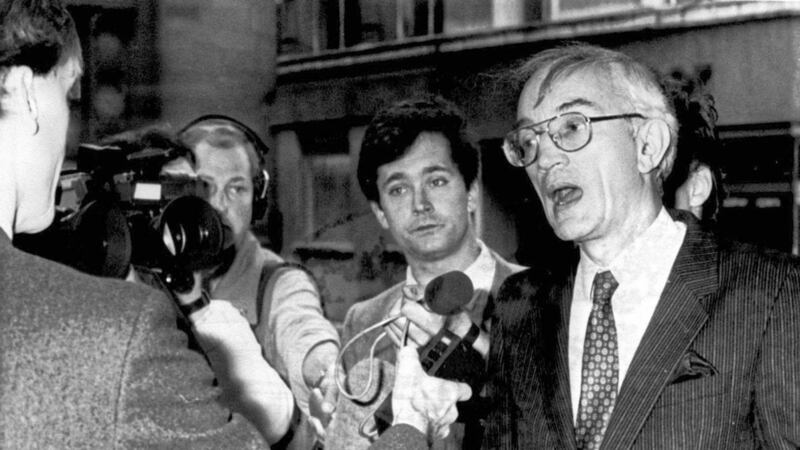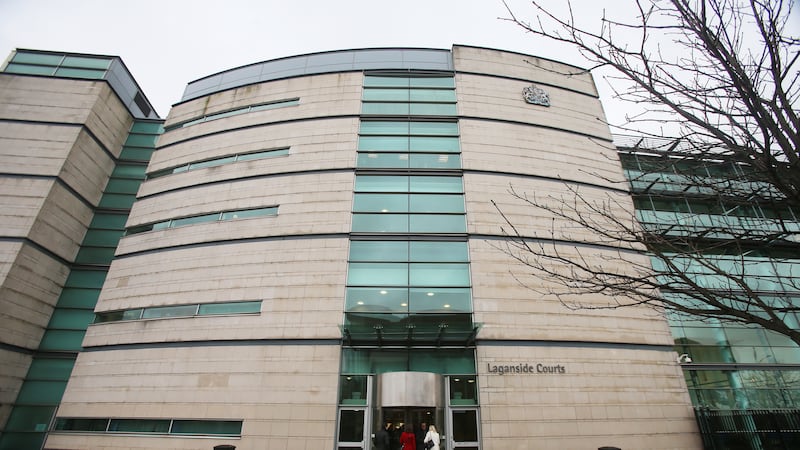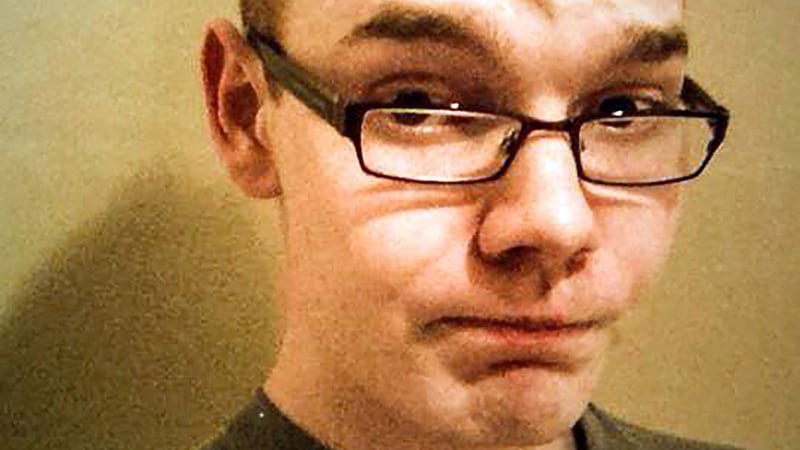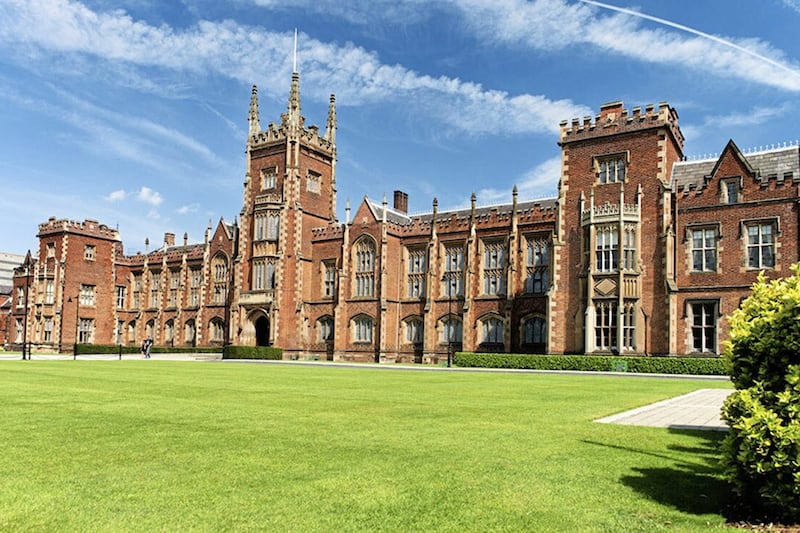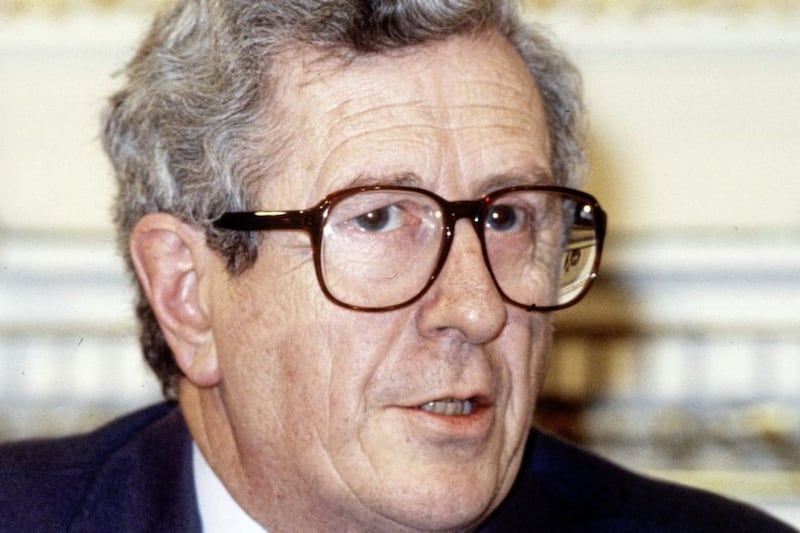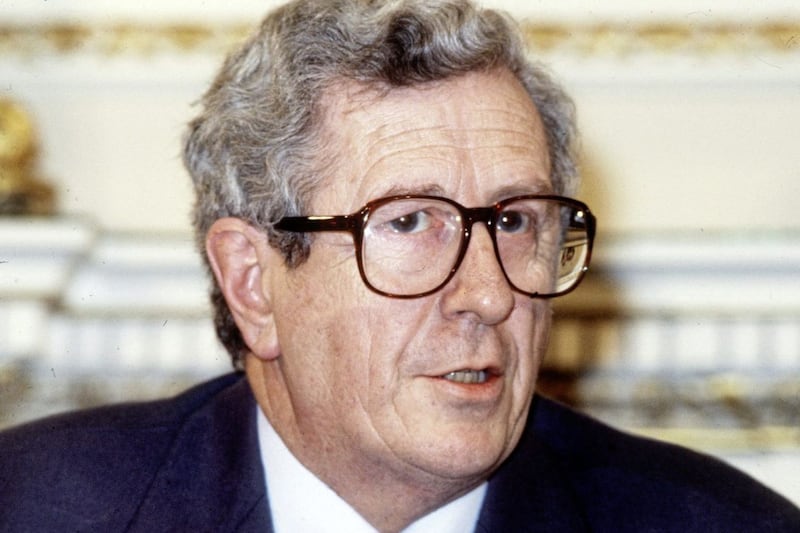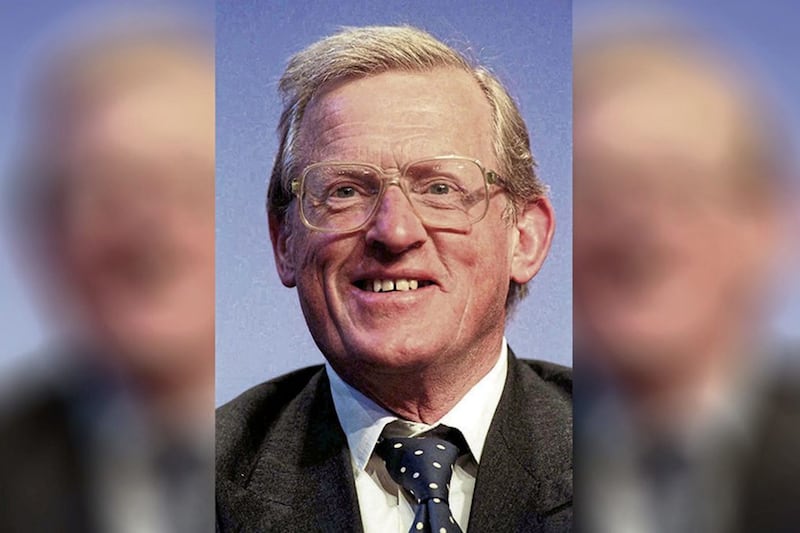A POLICE chief who investigated an alleged shoot-to-kill policy in Northern Ireland confided in a diplomat that he was not concerned about a cover-up but "murder, six murders", newly declassified files show.
There were also behind-the-scenes fears that a masonic plot within the police against John Stalker could be revealed during one of the most controversial episodes of the Troubles, according to the documents marked 'secret'.
Mr Stalker was asked to investigate the RUC shootings of six people but was removed from the inquiry shortly before it was due to report in 1986.
He was taken off the case at the moment he believed he was about to obtain an MI5 tape of one of the shootings.
Suspended over allegations of associating with criminals, he was later cleared of any wrongdoing and reinstated in his job as deputy chief constable of Greater Manchester Police but his report was never published.
Mr Stalker unexpectedly turned up at the opening of the Irish Centre in Manchester in November 1986, just months after his controversial suspension from the inquiry.
Then Irish ambassador to London Noel Dorr wrote to Taoiseach Garret FitzGerald about a brief private conversation with the police chief at the event.
Mr Stalker complained he never had access to politicians at any stage during this inquiry and was "convinced" had he been allowed to talk to then home secretary Douglas Hurd "he would have got attention to what he was saying".
"Stalker said that what he was trying as forcefully as he could to bring to attention ('to shout') was that what he was concerned with was not the minor question of lying or covering something up - 'it was murder, six murders'," Mr Dorr wrote.
"He believed very strongly that if he could have got through to ministers with this message they would have supported him."
He added: "Instead he had, at all times, to go through the chief constable and the Home Office Inspectorate and they blocked and muffled what he wanted to say."
At the time, Mr Stalker told the Irish diplomat he had completed reports into five of the six deaths as well as 90 per cent of his report into the RUC and "very much feared now that what he had done will be rewritten by other hands".
"In general he found the RUC were all right except for some people very near the top who were very much to blame," wrote Mr Dorr.
It was "sad and ironic" that the force's opposition to his investigation had damaged it much more than had it cooperated, acknowledged wrongdoing and turned over a new leaf, Mr Stalker said to him.
The classified files also revealed a behind-the-scenes furore over Mr Stalker being photographed at the Irish Centre launch along with Dublin's then foreign affairs minister Peter Barry.
Secretary of state Tom King summoned a senior Irish official in Belfast and "using very strong language ... for some time" let it be known he was extremely shocked to see the photo in the newspapers.
"He said the impact in Northern Ireland was damaging and that the police believed that the minister had deliberately set up the situation to support Stalker and demoralise them," Mr King told the official, according to the notes.
Some months beforehand in July, a senior Irish official met Andrew Mackay MP, then parliamentary private secretary to Mr King, for lunch in London.
During the meeting, Mr Mackay – who would later become shadow secretary of state for Northern Ireland – said he feared a police plot against Mr Stalker.
"On the Stalker affair, he sincerely hopes that a masonic or other plot within the police to stifle Stalker will not be revealed," the MP told the official, according to notes of the meeting.
"If it is, he believes that the implications would be wide-reaching and very serious: certainly involving, he feels, (RUC Chief Constable John) Hermon's resignation.
"He hoped, rather, that the matter will be resolved in such a way as to allow the contents of the report to be finalised and acted on."
